This content is private.
education and teaching
Absent
If any of my colleagues ever suggested — or simply thought (then how would I know?) — that they were more productive a given day because I wasn’t there, I would feel such shame that it might be difficult to show my face again among those folks. I would reflect on my behavior, on what I’d always considered my contributions, and I would likely realize that I shouldn’t have simply been second-guessing myself; I would realize I’d had a completely false self-image.
Today, several students were absent, with most of them were suspended. The types that are likely to get suspended are the types that are likely to disrupt class, and so today, two classes that generally leave me wondering about my decision to stay in education were absolute pleasures. They were productive, polite, focused. They were unlike they’d been in a long time, if ever. (Is it really only September? Are we really only in the second half of the first quarter?! I feel so tired of it all that everything in me screams that it must be March.)
What if I tell these students that? How would that conversation go? I think we all know: they would be indifferent. At least one of the students admitted openly that he is disruptive because he knows it annoys other students, and he likes to annoy other students.
Several of them will be back tomorrow — will it be business as usual? No. I’ve seen what we can accomplish: if they are unwilling to cooperate, I will do what is necessary to protect the education of all the other students.
The Reality of Teaching
At Work
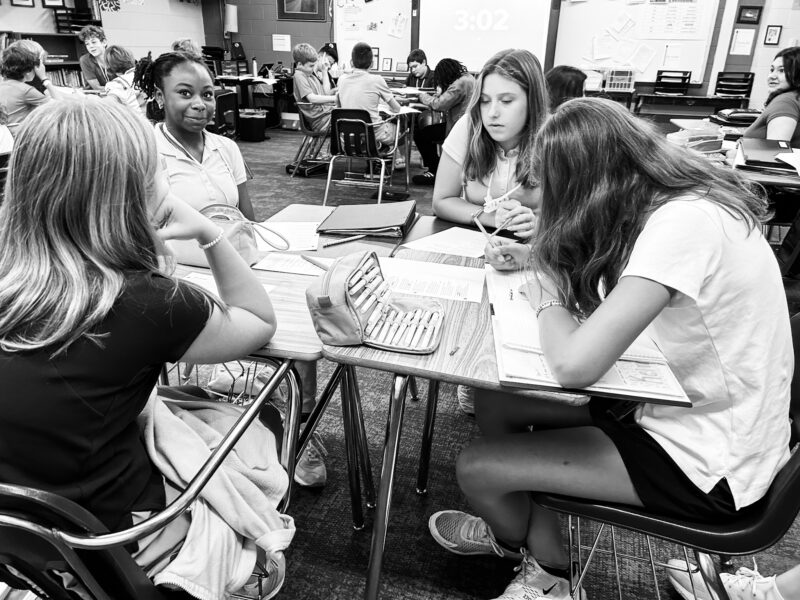
Sometimes
you just want the day to wash away in a blur and say nothing about it…
First Socratic Seminar
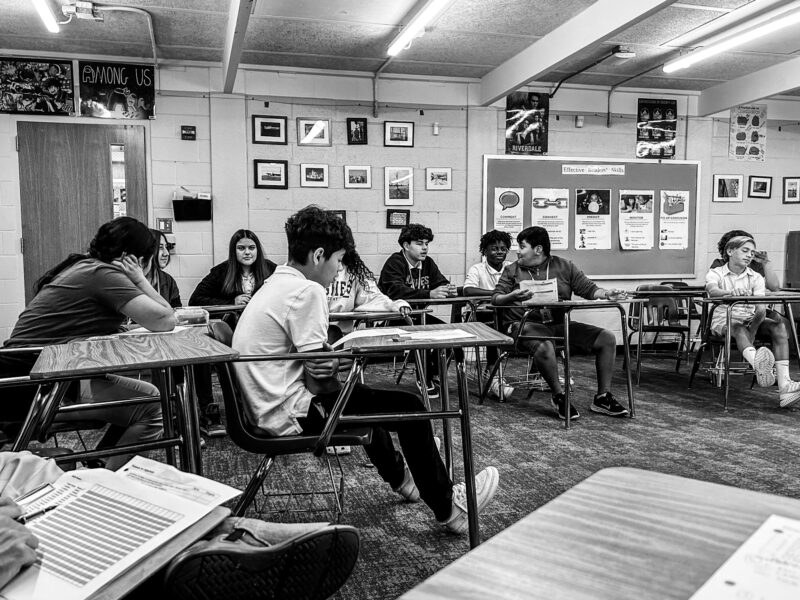
Fire
This year I’m trying a new starter: Write Into the Day. Basically, it’s a short writing exercise that is intended to get their minds in a literary space. I’ve tinkered with it, changed a few things, altered how we share, but so far, I’ve left the core idea alone: write a few sentences about a given prompt.
Last week, one of the prompts was this: “What lights that fire in you to give it your all?” When I was reading the responses this weekend, I found this one:
Mr Scott because he wants me to be my best in school so everytime he talks to me in the hallway about how much brain cells I have. After we finish talking in the hallway and when I go to my class I’m ready to learn so He always fires me up every time in class so Mr scott fires me and I give it all I have.
These kids kill me: it takes the smallest thing sometimes. This boy was telling me early in the year that he couldn’t do any better because he “only has two brain cells.”
“What are you talking about? You’ve got something like 120 billion brain cells, and they all work just fine as far as I can tell.”
The next day I saw him, I’d done some calculations, and I told him, “You know if all your brain cells were one second each, you’d have 3,800 years worth of seconds!”
“Really?!” He couldn’t believe it.
The smallest things…
Planning
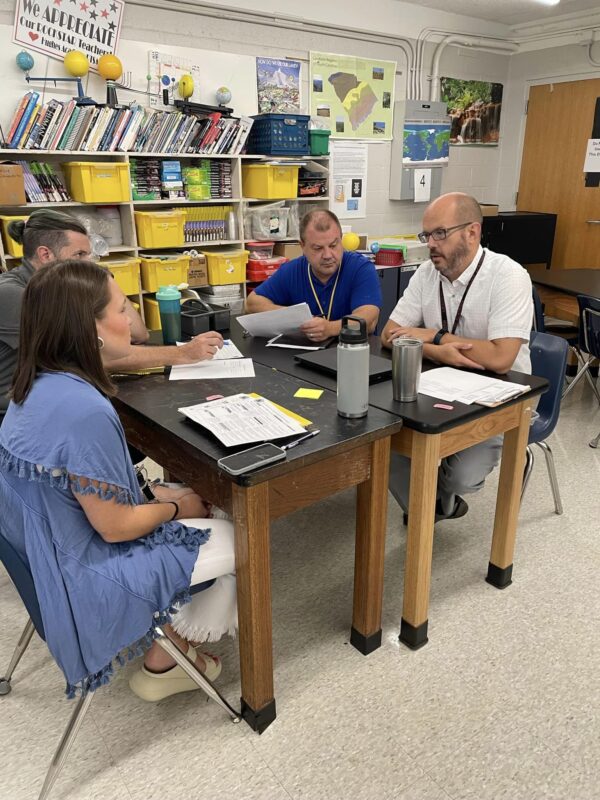
Fight
The Boy told me about it the moment I walked into the house. “There was a fight at school today. A big fight.” Apparently, two boys got into it during lunch, and it happened right in front of the Boy.
“Were you scared?” I asked.
“Yes!” he replied without hesitation or self-awareness of the fact that such a response would definitely mark him at some schools among some kids. One of those involved was someone E knows, and he was a little worried about what was happening to his friend and a little worried about what might happen him.
“I’m definitely in middle school now,” he concluded.
Tuesday School Thoughts
On the one hand, I’m responsible for teaching them to read and write better. That’s my bottom-line assignment at work. Traditionally, that’s all a teacher has ever been expected to do: teach the course material.
Yet some of my students fall under the rubric “at-risk” in one form or another. They can’t stay focused for more than five minutes (at best) or five seconds (literally, at worst). They can’t keep up with their materials until the next day (at best) or the next minute (at worst). They can’t accept “no” as an answer, and they take everything personally and turn things into battles that have no business being fights to begin with. They come in without materials — no pencil, no paper, no nothing.
These are the kids whose behavior, quite honestly, disrupts the learning of anyone and everyone else in the room. They are black holes for attention: their every second is a new event horizon to resist. Interactions with them can be quicksand, pulling everyone in and restricting movement completely. Working with them for five minutes can be utterly exhausting; working with them for a whole class period can have one questioning one’s sanity.
Yet what option do we have as teachers? No one else is teaching these kids (only a few — perhaps 7-10%, and not even that many who are so demanding and high-maintenance) these skills. At least it seems no one else is teaching them the skills. And someone has to teach these kids the basics of how to interact successfully with the world.
But it’s so exhausting…
Lockers
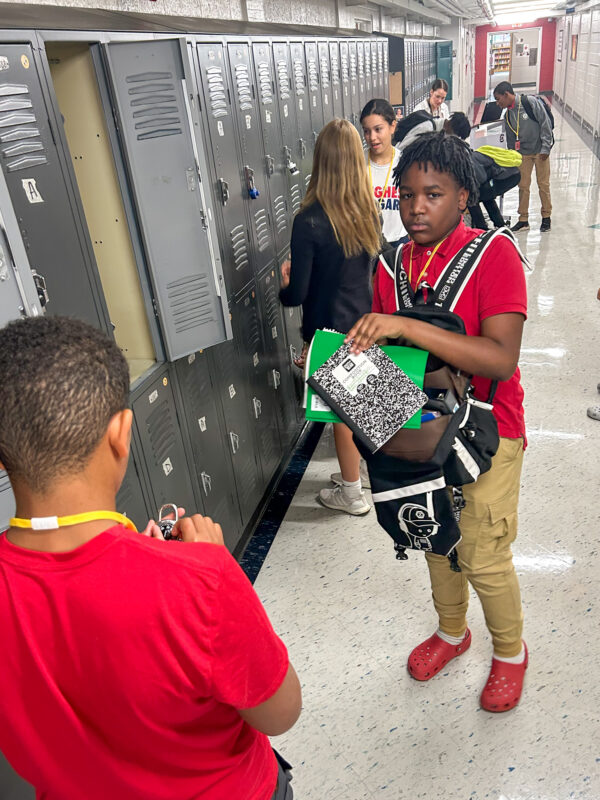
Working
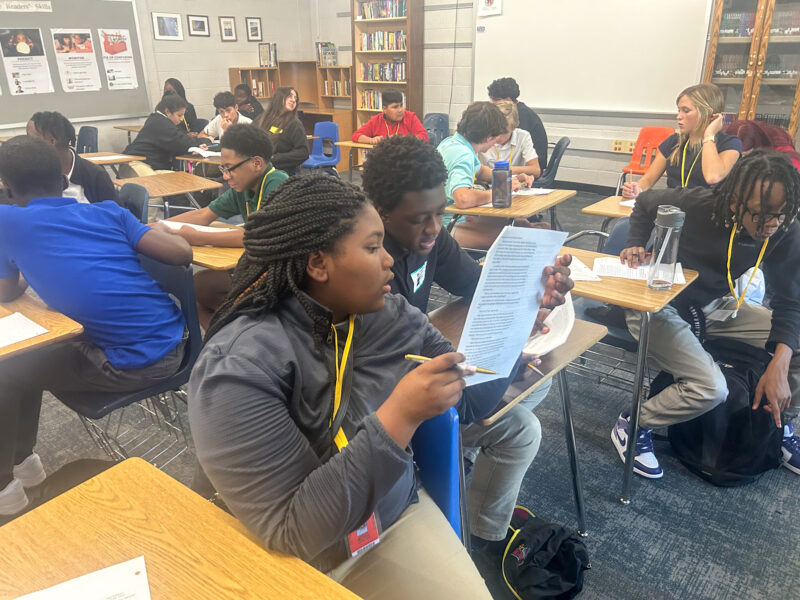
New Faces
At this point, I barely know any of their names. They have 4 new names to learn; I have almost 120 new names to learn. Still, we’re getting to know each other, learning what makes each other tick…
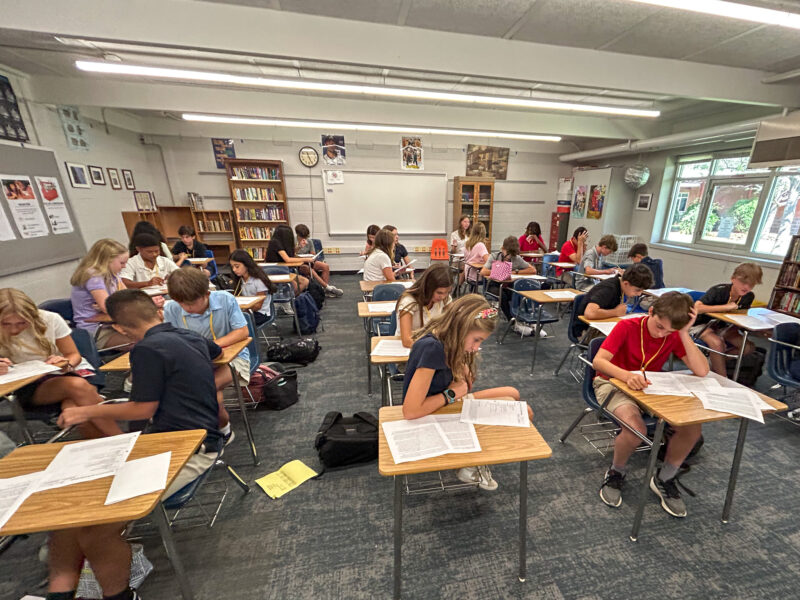
A good first day at school.
School Year’s Eve
Tomorrow, I begin my twenty-fifth year teaching, my sixteenth with Greenville County Schools. Am I ready? I’ve reviewed and signed all my IEPs and 504 plans. I’ve worked with other eighth-grade teachers to create this week’s lesson plans (and of course, the administration tweaked the lesson plan template, as they do every single year). I’ve spoken to teachers and administrators about which students I need to focus on early in order to form a good relationship so that when things sour, I have that good relationship to appeal to. I’ve spoken to my co-teacher in my inclusion class about what we’ll be doing and had a fruitful discussion about how we will work together. I’ve watched (almost) all my safety training videos (the same ones, year after year after year after year after year…). I’ve done everything I’m supposed to do, and I still don’t feel ready for tomorrow.
Part of that is because of what I’ve heard about this year’s group of kids. “They’re the toughest bunch we’ve ever had” was the common assessment of most seventh-grade teachers. I’m not looking forward to a year like that. Yet they always mature some over the summer, so I’m hopeful that will mitigate things a bit.
The Boy, though, feels even less prepared than I do. “I just want to go back to elementary school” has been his mantra. New starts always make him nervous, but K pointed out to him all the new things he’s thrived in this summer: a new scouting troop; summer camp with a different scouting troop; band camp with a group of strangers. Still, he’s reticent. I can understand that.
The Girl is just ready to go. She’s got so many AP classes this year that it’s troubling (seven out of her eight classes are AP: four the first semester, three the second semester), but she’s stubborn and resilient. She’ll make it.
K is not looking forward to the morning rush, but she and I will slip back into it.
Only the animals are calm about it…
Staff
Here’s a picture of our entire school staff — teachers, custodians, counselors, paraprofessionals, administrators, and cafeteria workers.
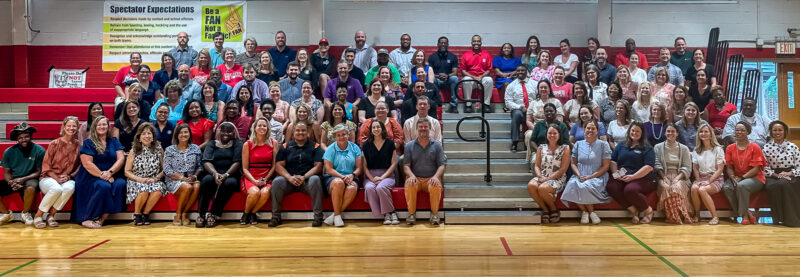
And here are all the people who were working here when I first started teaching at the school:
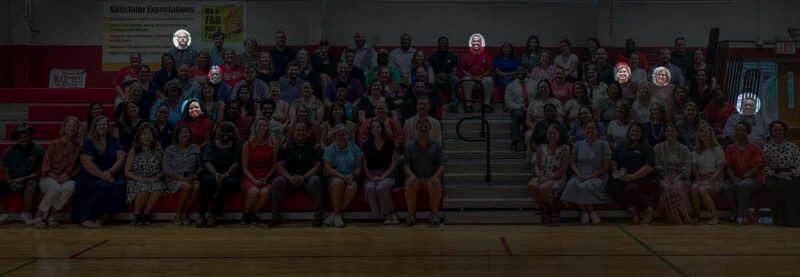
I am, in short, the seventh-longest serving teacher at the school at this point.
Books
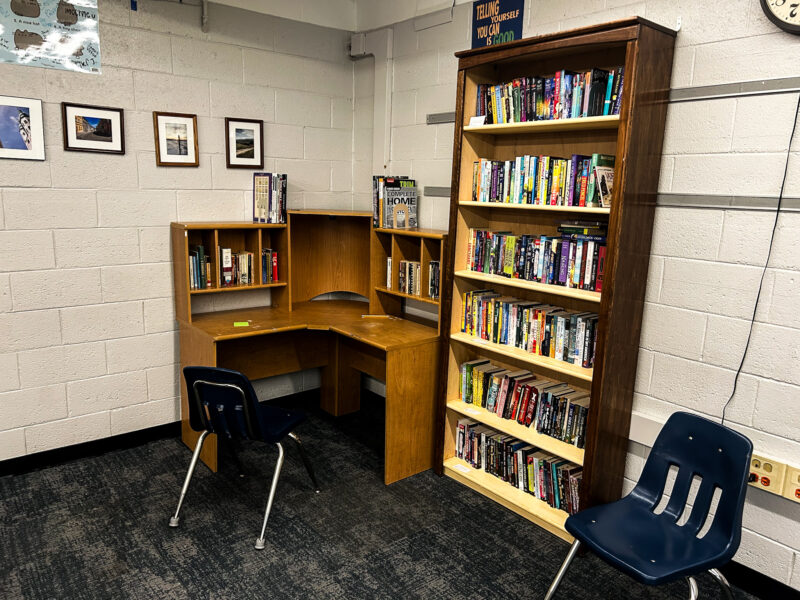
This is my new reading/focus corner. All those books? Mostly provided by the generosity of the state’s education department. But the state has also said all books I have students read have to be vetted. By three teachers. So I don’t know if it applies to these books or not. If so, I’ll hang a sign on the bookshelf:
Books for Decoration Only Due to State Documentation Requirements
Meet the Teacher
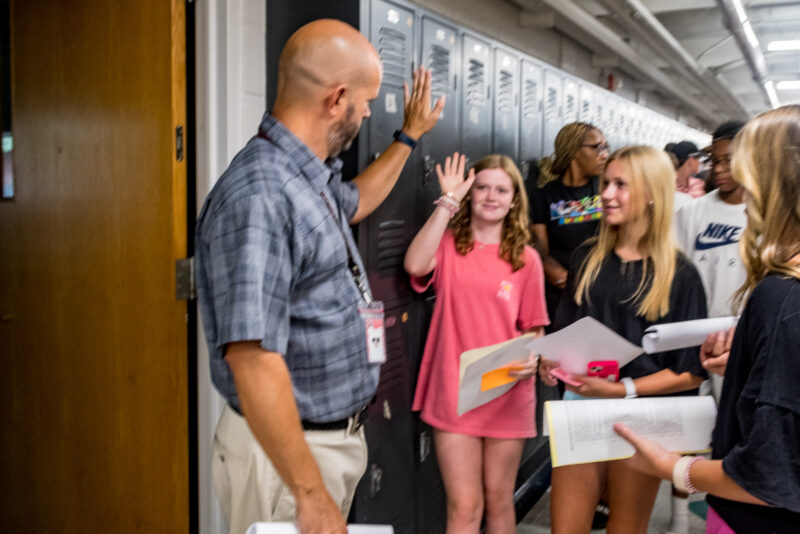
Last Day 2023
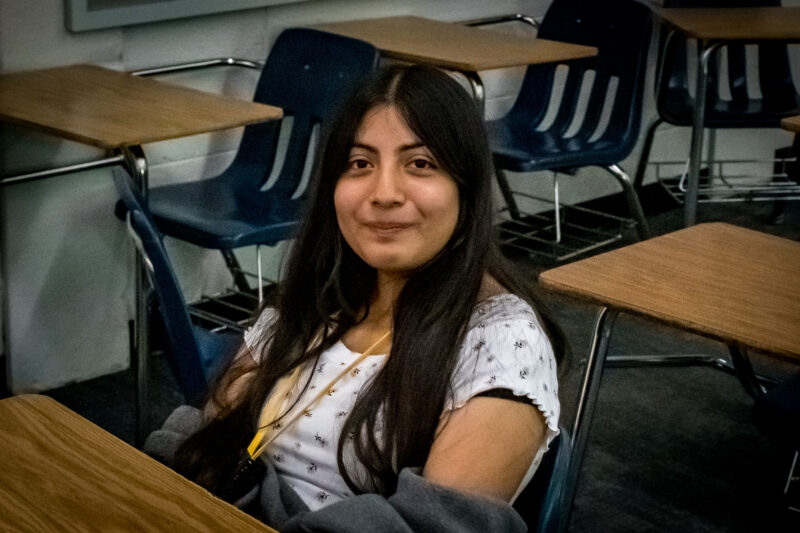
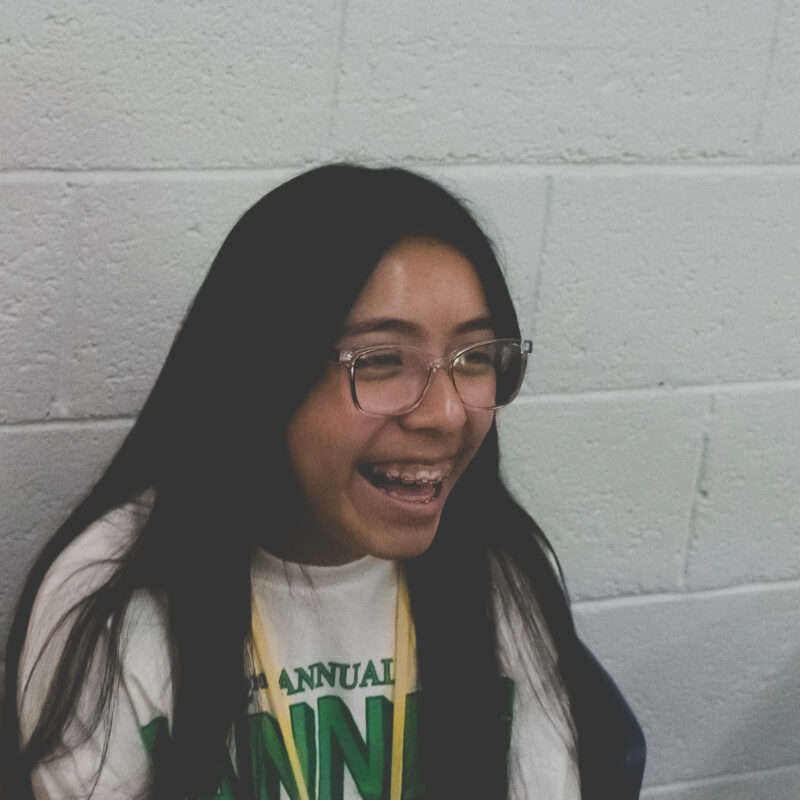
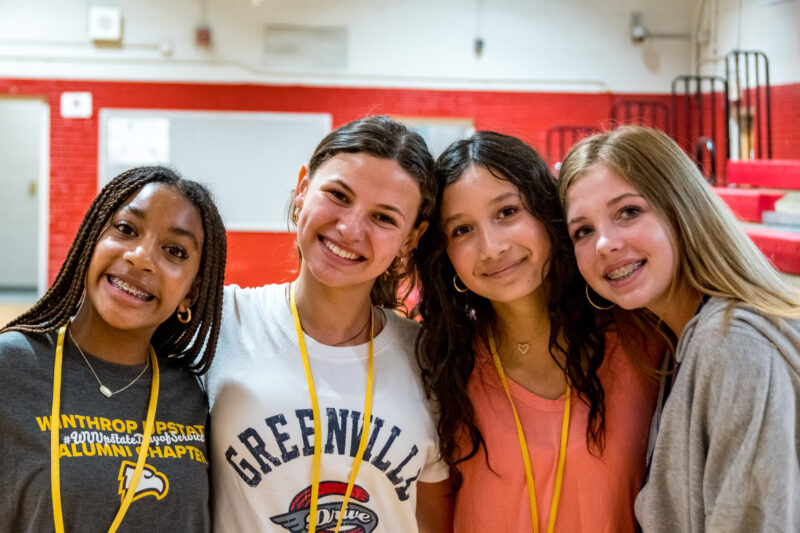
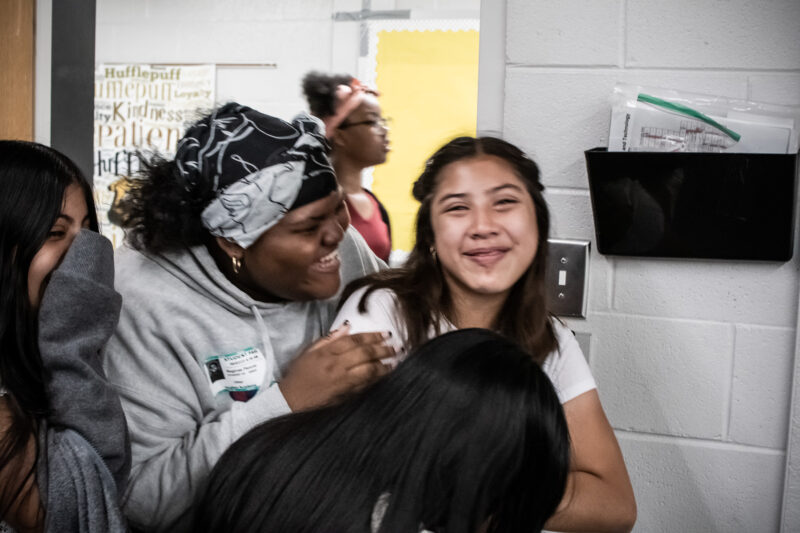
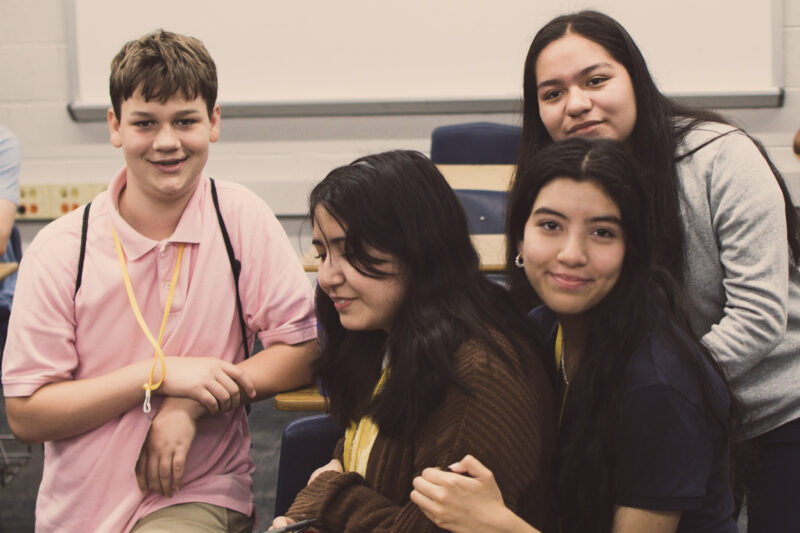
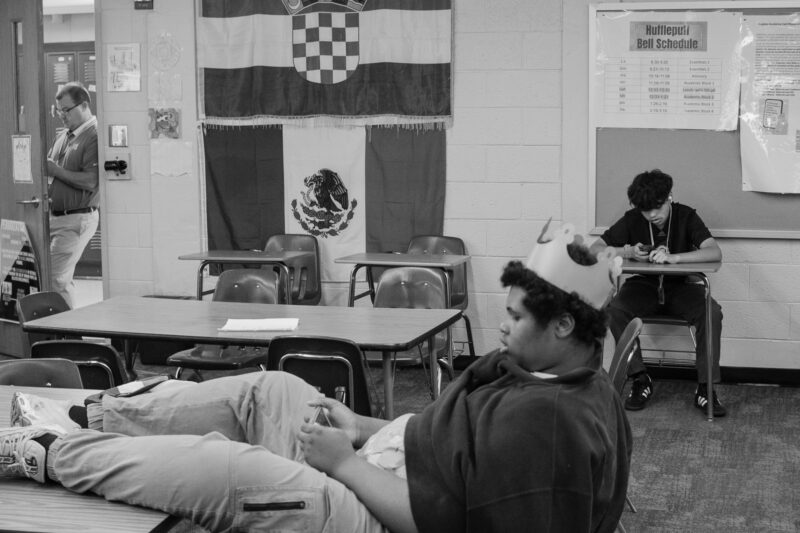
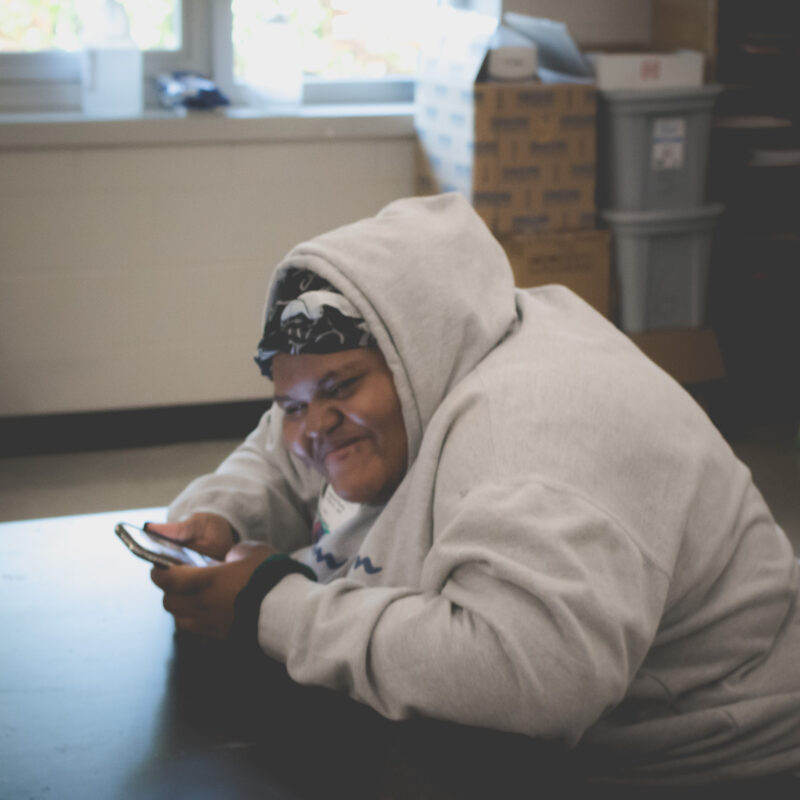
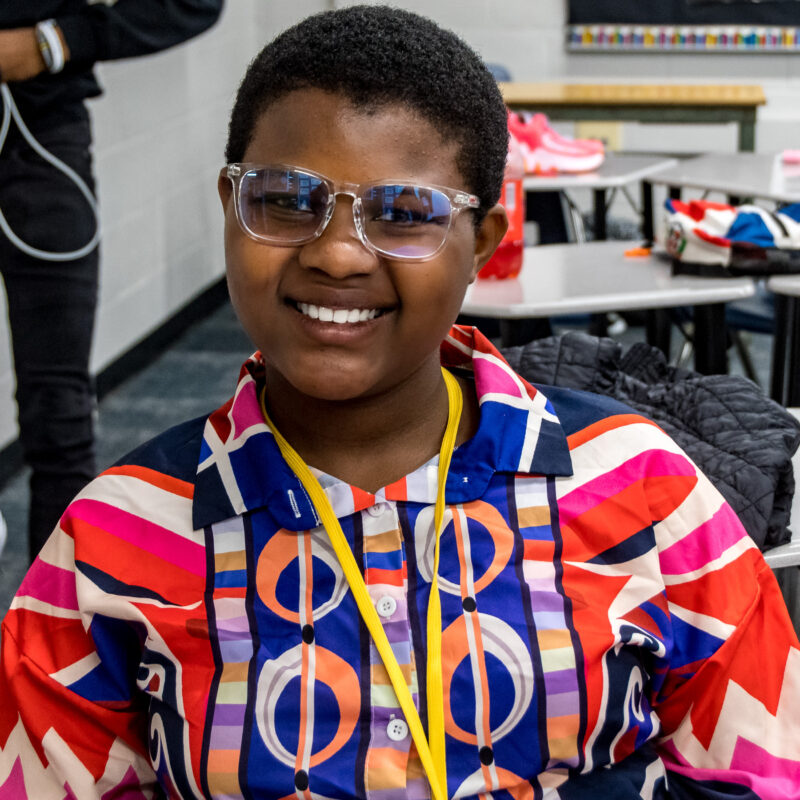
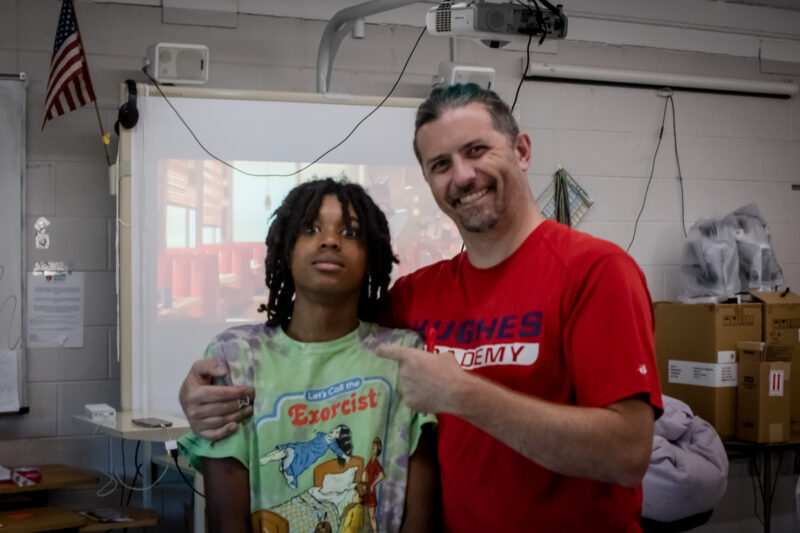
Eighth-Grade Day
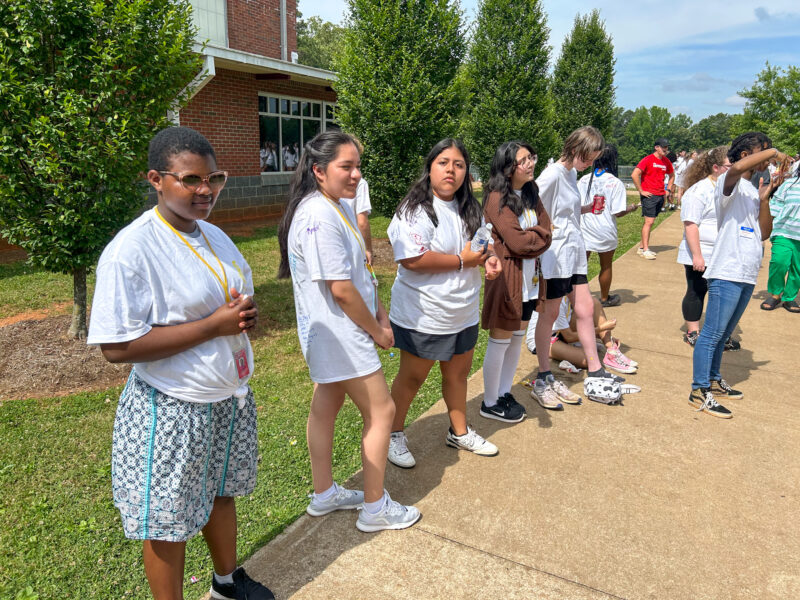
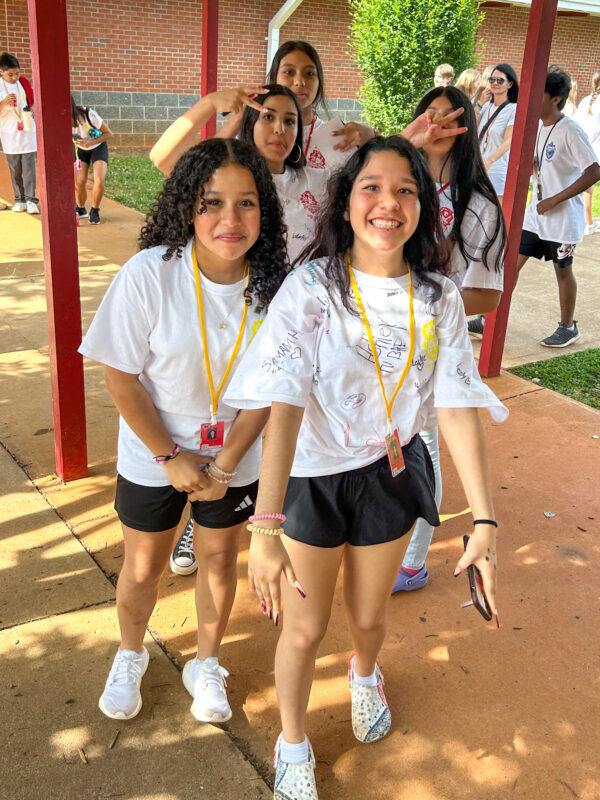
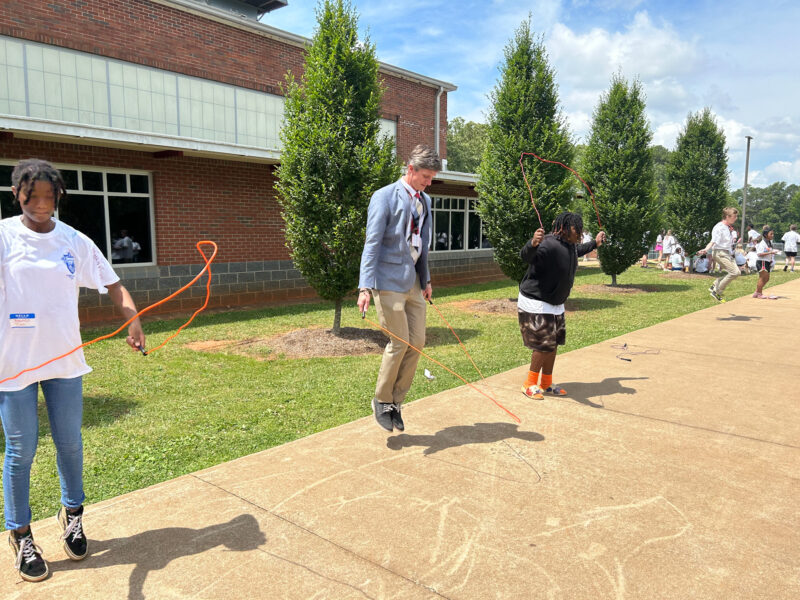
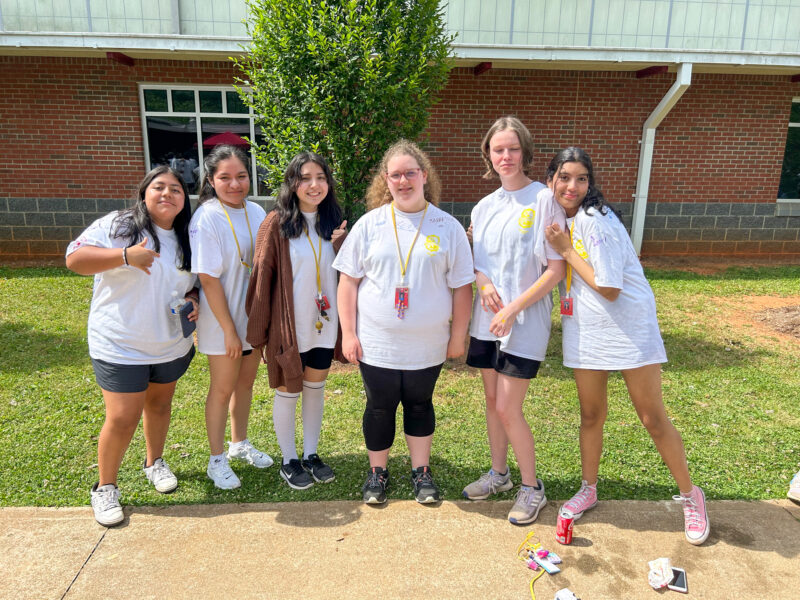
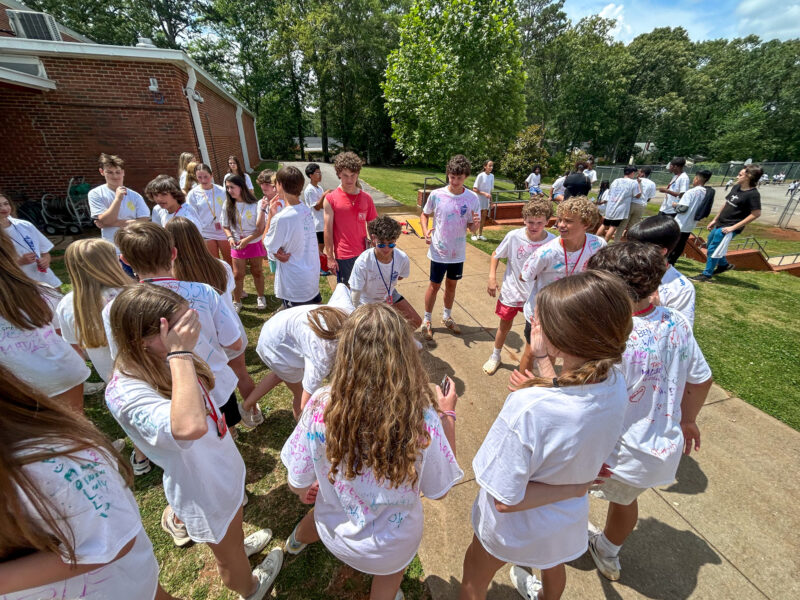
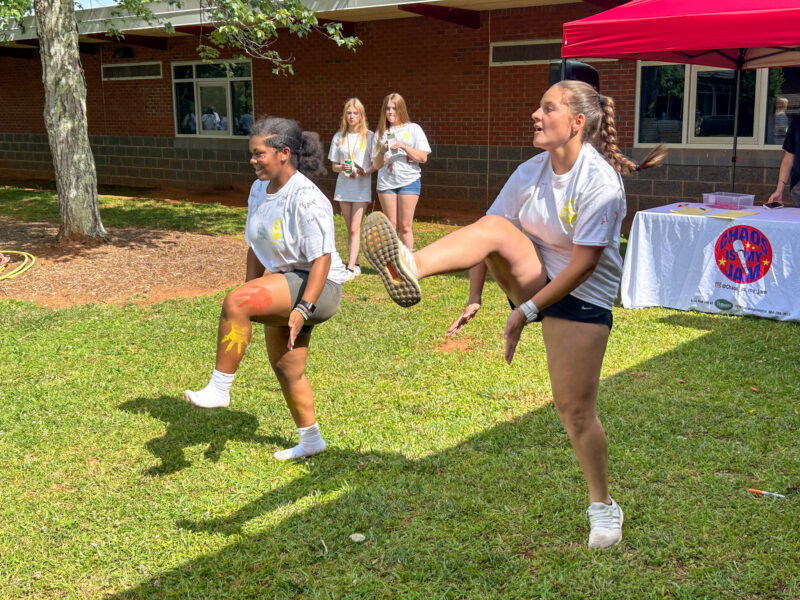
Coming faces
I spent the day in a sixth-grade classroom covering for a teacher wanted to go on today’s eighth-grade field trip. I met about 100 young men and ladies who are about to move into the seventh grade, students who will eventually turn out to be my students. I started each session taking roll and asking them about first impressions.
“What is a first impression?” I asked, and some really didn’t know. They’d heard of it, but they didn’t really know what it was or how we create those critical impressions that serve as the initial foundation for all future interactions.
“Are you making a first impression?” I asked Jose when I called his name.
“What are you doing that is creating a first impression,” I asked Sara ask I continued down the roster.
“What first impression have you presented to me?” I asked James when I got to his name.
“That’s making an impression,” I said to Nadia, pointing to her foot that bobbing up and down. She looked down then stopped immediately. “I’m not saying it’s a bad impression — I’m just pointing out that it is contributing to the first impression you’re creating.”
These are the basic social-emotional skills and awarenesses that so many kids are completely clueless about. They’re not aware of the simple fact that they are communicating with every single thing they do. They’re not aware that even when they think that no one is watching, that no one is drawing conclusions from how they walk, how they talk, how they interact with their friends — when they think they’re completely invisible.